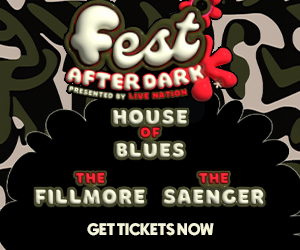On his second solo album, Harrison explores his New Orleans roots and has some fun in the process. With help from Dr. John and the Guardians of the Flame (led by Donald Harrison, Sr.), plus the excellent jazz musicianship of Cyrus Chestnut on piano and Carl Allen on drums, Indian Blues combines the neo-swing style Harrison is known for with Mardi Gras Indian music and funky New Orleans R&B.
Harrison returns to the bare roots of New Orleans music with Mardi Gras Indian call and response chants driven by hand-held percussion, harkening back to 19th-Century Congo Square gatherings where blacks fused African and Caribbean percussion to plant the seeds that all New Orleans music would grow from. As Chief of the Guardians of the Flame Mardi Gras Indian tribe, Donald Sr. leads the spirited chants. The album was born, in fact, when Harrison joined the Guardians on stage with his alto at Jazz Fest, decked out in full feathers.
Almost all of the cuts are reworked Mardi Gras songs. On “Ja-ki-mo-fi-na-hay,” Harrison wrote in some jazzy chords and responds to Dr. John’s chants via saxophone, combining the original shout response of old with its modern equivalent—the “trading fours” response of Jazz. The good Doctor plays on several songs, adding his rolling, strolling, gliding stride piano to the likes of “Shave ‘Em Dry,” a hard groovin’ laid-back funk tune penned by the legendary Big Chief Jolly. Several songs are similar to the recent Bluesiana projects of Dr. John, with sparse but heavy acoustic bass and swinging drums driving the blues. For the popular Mardi Gras song “Hiko Hiko,” Harrison reworks it with Caribbean flavored piano over the second-line beat, the melody played off-beat on sax, going into a hard-swung blues with an excellent solo by Chestnut. “Uptown Ruler” starts with a bluesy bass groove and vamps throughout, with Harrison and Chestnut exploring the tonal possibilities with their best playing on the album, interspersed with a slow, stalking bridge section. Harrison’s playing is always bluesy and highly melodic, with his own ballsy but subtle voice. For the only mainstream jazz tune, Harrison tackles the standard “Cherokee” in keeping with the Indian theme.
Harrison’s previous efforts are part of the recent New Orleans Center for Creative Arts (NOCCA) tradition of neo-swing: work with the Marsalis family, with the late drummer Art Blakey, in conjunction with trumpeter Terrence Blanchard, and solo with the excellent For Art’s Sake album. Having established himself in the jazz mainstream, Harrison now proves himself a real Mardi Gras Indian; this historical and fun testament should resurface at Carnival for years to come.




